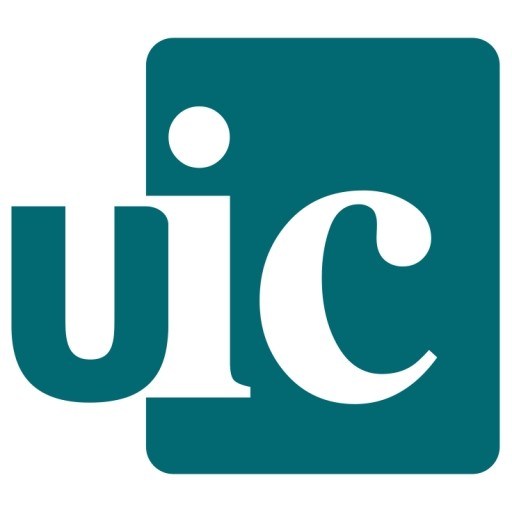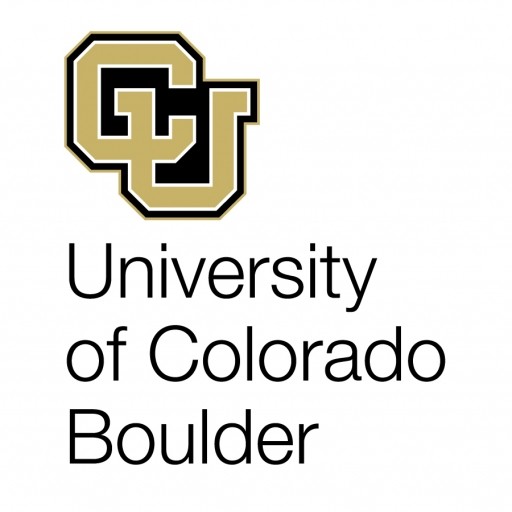Photos of university / #newcastleuni
The Media, Journalism, and Public Relations program at Newcastle University Medicine Malaysia offers a comprehensive education designed to prepare students for dynamic careers in the rapidly evolving fields of media communication and public engagement. This multidisciplinary program combines theoretical knowledge with practical skills, ensuring graduates are well-equipped to adapt to diverse media environments and effectively communicate across multiple platforms. Throughout the course, students will explore fundamental concepts such as media ethics, journalism practices, media law, digital communication, and strategic public relations. The curriculum emphasizes critical thinking, creativity, and ethical responsibility, fostering a deep understanding of the societal impact of media and information dissemination. Students will engage in hands-on learning through workshops, media production projects, internships, and collaborations with industry professionals, providing valuable real-world experience. The program also highlights emerging trends in digital media, social media management, and data journalism, preparing students for future-facing careers in media houses, corporate communications, digital marketing, and public relations agencies. With facilities and resources aligned with current industry standards, along with expert faculty members with extensive professional experience, students will develop the skills necessary to craft compelling narratives, manage corporate reputation, and analyze media content critically. Graduates of this program will be equipped to contribute ethically and innovatively to the media landscape, serving roles in journalism, public relations firms, media consultancy, and communication management. The program aims to cultivate professionals capable of shaping public opinion, informing communities, and influencing social change through responsible media practices. Upon completion, students will be prepared to enter the global media industry or pursue postgraduate study to deepen their expertise.
Detailed Course Facts
Application deadline January 15 Tuition fee- GBP 9000 Year (EEA)
- GBP 12075 Year (Non-EEA)
Duration full-time 36 months Languages Take an IELTS test
- English
Course Content
Our degrees are divided into Stages. Each Stage lasts for an academic year and you need to complete modules totalling 120 credits by the end of each Stage.
Please be aware that programme modules do change and therefore may differ for your year of entry.
Stage 1
Compulsory modules
- ECO1002 Economic Analysis
- ECO1005 Economic Applications and Data Analysis
- ECO1010 Mathematics for Economics
- POL1131 Studying Political Economy: Ideas, Theories and Skills
Optional modules
You choose two modules from the list below:
- POL1017 Governing Under Pressure: The Politics of the UK & EU
- POL1022 Introduction to Political Thought
- POL1032 Introduction to International Politics
- POL1046 Order & Disorder: The shaping of the 21st Century
- POL1047 Power, Participation and Democracy: Comparative Perspectives
Stage 2
Compulsory modules
- ECO2003 Economic Modelling
- ECO2004 Microeconomic Analysis
- ECO2005 Macroeconomic Analysis
Optional modules
You choose up to three modules from the following list:
- POL2012 Politics of the Middle East
- POL2022 Government and Politics of the USA
- POL2034 The Politics and Policy of the European Union
- POL2078 Critical International Politics
- POL2079 Political Thought: Hobbes to Marx
- POL2080 Political Thought: Conservatism, Nationalism and Fascism
- POL2082 Political Violence and the Modern State
- POL2087 Contemporary Russian Politics
- POL2088 The Politics of Africa: Africa's Place in Global Politics
Other optional modules may also be available from within the School of Geography, Politics and Sociology or the wider University.
Stage 3
Optional modules
You choose 60 credits of optional ECO modules from the list below:
- ECO3001 Advanced Microeconomics
- ECO3002 Advanced Macroeconomics
- ECO3004 Labour Economics
- ECO3005 Behavioural Economics and Experimental Methods
- ECO3006 Economics of Banking
- ECO3007 Financial Stability
- ECO3009 Price Discrimination
- ECO3014 Public Economics
- ECO3018 Financial Economics
- ECO3021 Economics of Risk and Uncertainty
- ECO3022 Health Economics
- ECO3026 Industrial Economics and Policy
- ECO3027 Economics of Development, Transition and Reform
You choose 60 credits of optional modules from the following list, to bring your total up to 120 credits:
- POL3046 Dissertation in Politics
- POL3047 Project in Politics: Semester 1
- POL3048 Project in Politics: Semester 2
- POL3059 Democracy and the Constitution
- POL3063 European Union: Decision-Making Simulation
- POL3071 Student Exchange: Semester 1
- POL3076 Student Exchange (Dissertation Students)
- POL3077 Global Poverty and Global Politics
- POL3078 Britain and the European Union
- POL3079 The Government and Politics of Italy
- POL3081 International Political Thought
- POL3082 Feminist Political Theory
- POL3084 Student Exchange Semester 2 (dissertation/research project)
- POL3085 Student Exchange: Semester 2
- POL3090 The Rise and Fall of New Labour
- POL3092 Political Parties and Elections in the UK
- POL3095 The United Nations in a Global World
- POL3100 History of World Political Thought
- POL3098 War, Genocide, Terror: Understanding Organised Violence
- POL3099 Power, Security and Protest in the Middle East
- POL3101 Postcolonial Politics
Other optional modules may also be available from other subject areas offered by the University.
The Media, Journalism and Public Relations program at Newcastle University Medicine Malaysia requires applicants to possess a strong academic background with relevant qualifications. A typical entry requirement includes a minimum of qualified British A-levels or equivalent qualifications such as the International Baccalaureate (IB), with preferred grades in subjects like English, Media Studies, or related areas. Applicants should demonstrate competence in English language proficiency, often evidenced by IELTS scores of at least 6.0 overall with no component less than 5.5, or equivalent qualifications like TOEFL scores. In addition to academic requirements, applicants may need to submit a personal statement that reflects their interest in media, journalism, or public relations, along with a CV that details relevant experiences or extracurricular activities related to communications, media, or related fields. Some applicants might be required to attend an interview or submit a portfolio of work to assess their communication skills and suitability for the program.
For mature students or those without traditional academic qualifications, Newcastle University Medicine Malaysia considers relevant professional experience or other qualifications on a case-by-case basis. The program emphasizes critical thinking, creative skills, and an understanding of media ethics and communication strategies, so applicants are encouraged to demonstrate these qualities through their application materials. The university also values diversity and encourages applications from students with different backgrounds and experiences. Throughout the admission process, the selection committee reviews each application holistically, considering academic achievements, personal motivation, and potential for success in the media and communication industries.
Once admitted, students must meet ongoing requirements such as participation in coursework, internships, or placement opportunities to enhance practical skills. The program aims to prepare graduates for careers in journalism, public relations, media production, and related fields, emphasizing professional standards, ethical responsibilities, and effective communication practices. Students are expected to adhere to university regulations and maintain satisfactory academic progress throughout the duration of the course.
The financing of the Media, Journalism and Public Relations program at Newcastle University Medicine Malaysia is designed to support both Malaysian and international students through various funding options. Students are encouraged to explore a range of financial assistance opportunities, including university-specific scholarships, government grants, private sector sponsorships, and external scholarships offered by organizations and foundations. The university periodically offers merit-based scholarships to outstanding students who demonstrate academic excellence, leadership qualities, and a commitment to the field of media and communications. These scholarships may cover partial or full tuition fees and, in some cases, provide allowances for living expenses.
In addition to scholarships, students may access financial aid programs such as student loans and payment plans that facilitate the manageable installment of tuition fees over the duration of the course, typically spanning three years. The university also maintains partnerships with industry stakeholders and media organizations, which sometimes provide sponsorships or internship-supported funding opportunities. International students should consider additional funding sources available in their home countries, including government-sponsored scholarships, educational grants, and private funding options, some of which may be available specifically for students studying media-related disciplines abroad.
It is advisable for prospective students to consult the university's official financial aid office or the program's dedicated webpage for the most current information regarding available funding options, application procedures, deadlines, and eligibility criteria. Financial planning should also include consideration of accommodation, living expenses, travel costs, and health insurance, which are essential components of studying abroad. The university offers guidance and resources to assist students in creating a comprehensive financial plan to support their studies, ensuring they can focus on academic and professional development without undue financial stress. Overall, Newcastle University Medicine Malaysia aims to make education accessible through a variety of financial support mechanisms, promoting diversity and inclusivity within its student community.
The Media, Journalism and Public Relations program at Newcastle University Medicine Malaysia is designed to equip students with comprehensive knowledge and practical skills in various aspects of media communication. This program aims to prepare graduates for a diverse range of careers in the media industry, including journalism, public relations, media production, broadcasting, and digital media management. The curriculum combines theoretical foundations with practical applications, emphasizing critical thinking, ethical considerations, and effective communication strategies. Students will explore topics such as media theory, journalism practices, digital media and communication, public relations strategies, media law and ethics, and media production techniques. Throughout the program, students have opportunities to develop their skills through hands-on projects, internships, and collaborations with industry partners. The program also encourages the development of research skills necessary to analyze media trends and impacts critically. Newcastle University Malaysia's emphasis on global perspectives ensures that students are prepared to operate effectively in multicultural and international media environments. The program benefits from the university's strong links with media industries and academic excellence in communication studies, providing a robust foundation for graduate employment or further academic pursuits. Graduates of this program will be well-positioned to undertake roles in media outlets, public relations firms, corporate communication departments, government agencies, and non-governmental organizations, contributing to informed public discourse and effective communication strategies in various sectors. The program is suitable for students passionate about media and interested in shaping public opinion, storytelling, and digital content creation. Overall, the Newcastle University Medicine Malaysia’s Media, Journalism and Public Relations program aims to produce skilled, ethical, and innovative media practitioners capable of making significant contributions within the rapidly evolving media landscape.









